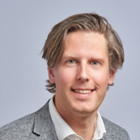- Supports
- About
-
News and Events
News and Events
Events
How can we help?
Unlocking the Danish Medtech Market
27th
August 2024
Michael Norman, Market Advisor Life Sciences and Healthcare Nordic Region, Enterprise Ireland
At the core of the so called ‘Medicon Valley’ (the Danish-Swedish life sciences cluster home to more than 60% of Scandinavia’s pharma industry), the Danish market is one that offers a plethora of opportunities for Irish MedTechs and producers of medical devices. The Danish life sciences market has shown strong and consistent growth over the last decade, is forecast to continue growing at 4-6% annually in coming years and had an estimated total market value of €3.7BN in 2021, homing some of the world's largest multinational companies in the medical device, biotechnology, and pharmaceutical sectors, including Novo Nordisk, Coloplast, and LEO Pharma.
The Danish healthcare system is regarded among the best in the world and cutting edge, innovative technologies, as well as any tools that allow for cost reductions and treatment/monitoring of patients outside of hospitals are in high demand. Government subsidies mean healthcare professionals are willing to spend on quality products and increases in public expenditure on medical technology are evident. On top of this, Denmark has ranked consistently high in terms of ease of doing business (4th globally according to the World Bank’s most recent analysis), Copenhagen has strong infrastructure keeping it well connected to Ireland and other countries and over 90% of Danes can communicate proficiently in English, all of which point to Denmark being an excellent market for Irish firms to target. However, despite these various factors, Denmark can prove a tough market to crack. In this piece, we look at three key areas that Irish firms must build a strategy around prior to entering Danish MedTech market, namely the structure of procurement in Denmark’s healthcare system, route to market and pricing strategy.
Procurement
To achieve success in the Danish healthcare market, it is essential to understand the structure of the healthcare system, which is characterized by public-private collaboration. Within this, upwards of 85% of purchases of MedTech and healthcare equipment are through public procurement, which is done on a regional level, with authorities in five separate regions of Denmark looking after their own tenders (typically published in Danish). Thus, having a presence on the ground, or a means to keep a close eye on upcoming projects is essential. Also of note is the Danish reimbursement system for the private sector. General practitioners and dentists act as independent businesses and make their own purchases of devices and technologies but are reimbursed for these purchases. The rate of reimbursement will vary across different products and so understanding how this system affects your product is key when entering discussions with buyers.
It is also important for firms to acquaint themselves with The Danish Medicines Agency, or Lægemiddelstyrelsen, the government body responsible for regulating medical devices and pharmaceuticals in Denmark. As across Europe, medical devices in the Danish market must be CE marked, allowing them to be distributed freely. Lægemiddelstyrelsen also charges a registration and annual fee for manufacturers operating in the region. The registration fee will typically be in the region of 1150 DKK (circa €150), with the annual fees varying according to the class of device.
Route to market
While a significant appetite exists for new and cost reducing technologies in the Danish healthcare system exists, accessing this demand can prove challenging for incoming companies without a reputation and presence in the region. From Enterprise Ireland Nordic’s experience in the market, we find that the optimal route to market for Irish companies tends to be through finding the right distributor, as getting access to healthcare professionals, the users of medical devices, directly can prove extremely challenging. While taking a boots-on-the-ground approach and hiring staff in market can also be an effective means of engaging the private healthcare sector and accessing tenders, our experience suggests that until a firm is well established, a distributer tends to be the best way to go.
Normally, medical device distributors are members of industry associations or exhibit at local trade shows. Larger distributors can be found through desktop research but smaller distributors that sell more niche products can sometimes be difficult to identify. This is an area where we at Enterprise Ireland can assist your company, as speaking local language and having an in-market network is key to finding the right fit.
Pricing strategy
Finally, we have pricing strategy. As previously mentioned, there is a major trend towards cost reduction and efficiency across the Danish healthcare market and thus price becomes central to any conversation with buyers or distributors. It is also important to consider that, anecdotally, Danes like to drive a bargain both in direct sales and through a distributor and are keen to feel as though they have got their money’s worth. As such, understanding how your price compares to competitors is key and must be well thought out prior to entering discussions. We see particularly high demand for products such as hospital supplies, wound care management, cardiovascular devices, orthopedic devices, general surgery devices and while there is money to be spent on the right technologies, finding it at the right price is just as important in Denmark.
While this market can prove difficult to crack at first, once a firm breaks in it can be extremely lucrative and the successes of companies like Vitalograph and Trulife, for example, show the huge potential for Irish MedTechs in Denmark. The aim of this guide is to give a short overview of the key elements to consider when entering the market.
Michael Norman is Market Advisor with Enterprise Ireland leading the life sciences and healthcare sectors in the Nordic Region. For further support on your market approach in Denmark or more information on Danish healthcare, you can reach out to Michael at michael.norman@enterprise-ireland.com.

